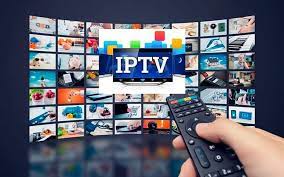IPTV Services What You Need to Know Related To IPTV
ByadminSeptember 6, 2023
Are you tired of paying high fees for cable or satellite TV? Do you want to enjoy more flexibility and variety in your entertainment options? If so, you might want to consider switching to IPTV services.
IPTV stands for Internet Protocol Television, which means that it delivers TV content over the internet instead of through traditional cables or satellites. IPTV services allow you to stream live TV channels, video on demand (VOD), and other media content on various devices, such as smart TVs, smartphones, tablets, laptops, and desktops.
Buy IPTV Subscription
In this article, we will explain what IPTV services are, how they work, what are the benefits and drawbacks of using them, and how to choose the best IPTV service provider for your needs. We will also compare some of the most popular IPTV services in the market and give you some tips on how to optimize your IPTV experience.
What is IPTV?
IPTV, or Internet Protocol Television, is a technology that delivers television content through internet connections rather than traditional cable or satellite transmissions. This cutting-edge approach allows viewers to access a wide range of TV channels and on-demand content via the internet, providing more flexibility and control over their viewing experience.
How Does IPTV Work?
To access IPTV services, you’ll need a stable internet connection and a compatible device such as a smart TV, computer, or smartphone. IPTV providers deliver content to your device via IP packets, which are then decoded and displayed on your screen. This method enables real-time streaming and on-demand access to a vast library of content.
Advantages of IPTV
1. Cost-Efficiency
IPTV services typically offer competitive pricing compared to traditional cable subscriptions. Users can select packages tailored to their preferences, reducing unnecessary costs.
2. On-Demand Content
One of the primary advantages of IPTV is its extensive library of on-demand content. Users can watch their favorite shows and movies whenever they want, eliminating the need to adhere to fixed schedules.
3. Cross-Device Compatibility
IPTV services are compatible with a wide range of devices, from smart TVs and computers to smartphones and tablets. This flexibility allows viewers to watch content on their preferred screens.
4. High-Quality Streaming
Most IPTV services offer high-definition (HD) and even 4K streaming options, ensuring a superior viewing experience for users with compatible devices and internet speeds.
Considerations Before Switching to IPTV
1. Internet Speed and Stability
Since IPTV relies on internet connectivity, it’s crucial to have a stable and high-speed internet connection to enjoy uninterrupted streaming. Check your internet plan to ensure it meets the requirements for IPTV.
2. Content Availability
Research the IPTV service providers available in your region and compare their channel offerings. Make sure they have the channels and content you desire before making the switch.
3. Compatibility
Ensure your devices are compatible with IPTV services. Some older TVs may require additional equipment or a compatible streaming device to access IPTV content.
4. Subscription Plans
Evaluate the subscription plans offered by different IPTV providers. Consider factors like pricing, contract terms, and the availability of add-on packages to find the right fit for your budget.
How Do IPTV Services Work?
IPTV services use a technology called IP multicasting, which allows them to send multiple streams of data to multiple users at the same time. This way, they can deliver high-quality video and audio content without consuming too much bandwidth or resources.
To use IPTV services, you need three things:
- A high-speed internet connection (at least 10 Mbps for HD quality and 25 Mbps for 4K quality)
- A compatible device (such as a smart TV, a set-top box, a smartphone, a tablet, a laptop, or a desktop)
- A subscription to an IPTV service provider (which usually costs less than cable or satellite TV)
Depending on the IPTV service provider you choose, you may also need an app or a software to access the content. Some IPTV services are web-based, which means that you can watch them on any browser. Others require you to download an app or a software on your device.
Once you have everything set up, you can start enjoying your IPTV service. You can browse through different channels and categories, watch live TV or VOD content, pause, rewind, fast-forward, record, and schedule programs, and customize your preferences and settings.
What Are the Benefits of IPTV Services?
IPTV services offer many advantages over traditional cable or satellite TV. Here are some of the main benefits of using IPTV services:
- More variety and flexibility: IPTV services provide you with access to thousands of channels from different countries and genres. You can watch local and international news, sports, movies, shows, documentaries, music, and more. You can also choose from different packages and plans that suit your budget and preferences. You can add or remove channels as you wish and only pay for what you watch.
- More convenience and control: IPTV services allow you to watch TV anytime and anywhere. You can stream live TV or VOD content on any device that has an internet connection. You can also pause, rewind, fast-forward, record, and schedule programs as you like. You can also use features such as catch-up TV, which lets you watch programs that you missed up to 7 days after they aired.
- More quality and reliability: IPTV services deliver high-quality video and audio content without any interference or distortion. You can enjoy HD or 4K quality depending on your internet speed and device capabilities. You can also avoid issues such as bad weather, signal loss, or power outage that may affect cable or satellite TV.
What Are the Drawbacks of IPTV Services?
IPTV services are not perfect and have some limitations and challenges. Here are some of the main drawbacks of using IPTV services:
- Dependence on internet connection: IPTV services rely on your internet connection to work properly. If your internet speed is slow or unstable, you may experience buffering, lagging, freezing, or pixelation issues. You may also consume a lot of data if you stream a lot of content, especially in HD or 4K quality. Therefore, you need to have a fast and reliable internet connection with unlimited data plan to enjoy IPTV services without any problems.
- Compatibility issues: Not all devices are compatible with all IPTV services. Some IPTV services may require specific hardware or software to run smoothly. For example, some IPTV services may not work well on older smart TVs or set-top boxes. Some may not support certain operating systems or browsers. Some may not have apps for certain devices or platforms. Therefore, you need to check the compatibility of your device with the IPTV service provider before you subscribe.
- Legal issues: Not all IPTV services are legal and authorized. Some IPTV services may offer pirated or unlicensed content that violates the copyrights of the original owners. This may expose you to legal risks and penalties if you are caught using such services. Therefore, you need to be careful and do your research before you choose an IPTV service provider. You should only use IPTV services that are legitimate and have proper licenses and agreements with the content providers.
How to Choose the Best IPTV Service Provider?
There are many IPTV service providers in the market, each offering different features, prices, and quality. Choosing the best IPTV service provider can be a daunting task, especially if you are new to IPTV. Here are some factors that you should consider when choosing an IPTV service provider:
- Content: The most important factor is the content that the IPTV service provider offers. You should look for an IPTV service provider that has a wide range of channels and categories that suit your interests and needs. You should also check the quality and quantity of the content, as well as the availability and frequency of updates. You should also look for an IPTV service provider that offers VOD content, catch-up TV, and other features that enhance your viewing experience.
- Price: The next factor is the price that the IPTV service provider charges. You should look for an IPTV service provider that offers affordable and reasonable prices that fit your budget. You should also compare the prices of different packages and plans that the IPTV service provider offers. You should also check for any hidden fees or charges that may apply, such as installation, activation, cancellation, or renewal fees.
- Customer service: The last factor is the customer service that the IPTV service provider provides. You should look for an IPTV service provider that has a friendly and responsive customer support team that can help you with any issues or queries that you may have. You should also check the availability and accessibility of the customer support team, as well as the methods and channels of communication that they use. You should also look for an IPTV service provider that has a good reputation and positive reviews from other customers.
IPTV Reseller
IPTV Subscription
Conclusion
IPTV services offer a compelling alternative to traditional cable TV, providing cost-efficiency, flexibility, and a vast library of content. However, before you cut the cord, it’s essential to consider factors like internet speed, content availability, device compatibility, and subscription plans. By doing so, you can ensure a seamless transition to IPTV and enjoy a tailored entertainment experience.
Frequently Asked Questions (FAQs)
Accordion Sample TitleWhat is IPTV and how does it work?
IPTV, or Internet Protocol Television, is a digital TV service delivered over the internet. It utilizes internet protocols to transmit television content, allowing users to stream media on their devices. Unlike traditional cable or satellite TV, IPTV relies on a broadband connection to deliver a variety of channels and on-demand content.

